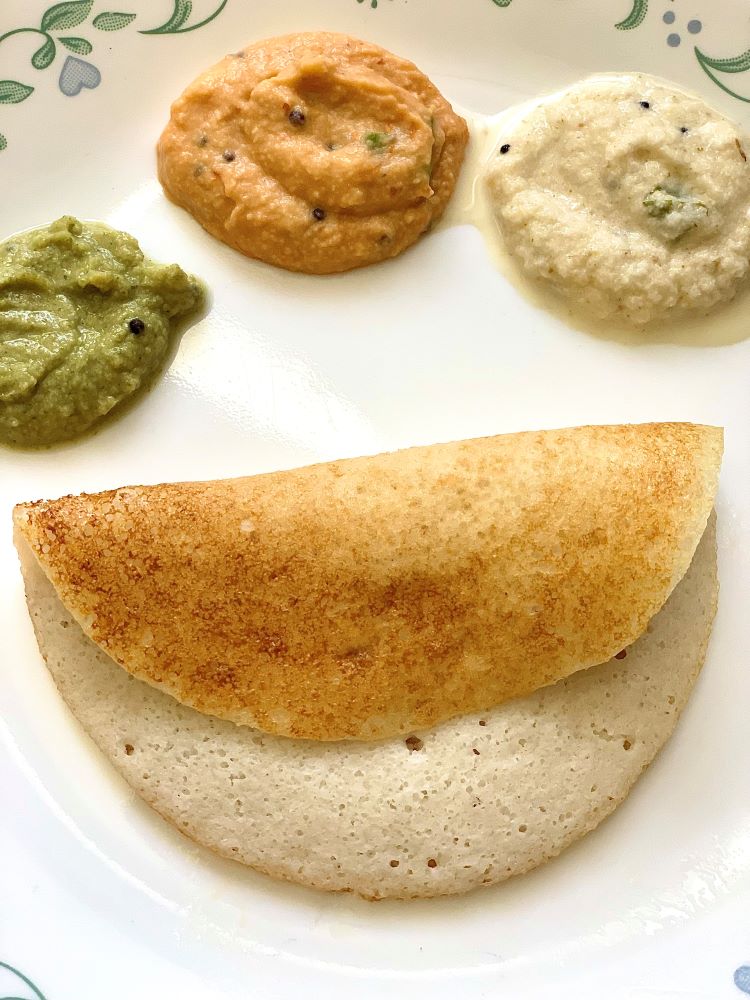
Karnataka style coconut dosa (Thengai dosai in Tamil) is a flavorful, yummy dosa variety. It is prepared with rice, poha and coconut as the main ingredients.
This dosa is so delicious. The texture is spongy, super soft and totally melt in mouth. Coconut adds a very refreshing taste to this dosa and takes the regular dosa to a whole new level. This is a healthy and a filling breakfast dish which takes only minutes to cook. Adding flattened rice, poha as we call it, makes it fluffier and softer than traditional dosas.
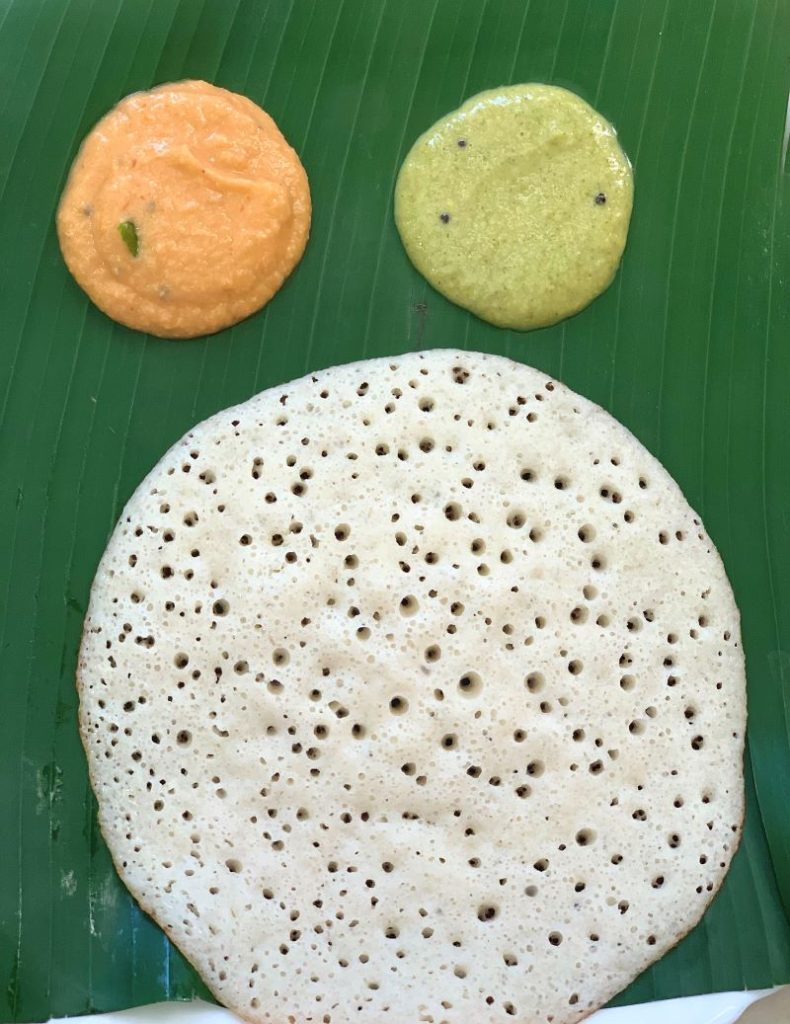
This is my child’s favourite breakfast meal. The first time I made this dosa some 3 years back, my child literally gobbled 4 of these. I made extra batter to last me 2-3 days and in those 3 days all he took was coconut dosa in his school lunch box too. 😄 Even today whenever I make this for breakfast, I see the same excitement on his face.
Traditionally, this is made without adding urad dal, but I added some to add more protein. You can skip it if you like. The softness in this dosa comes from natural fermentation. There is no need to add any leavening agents to it. Fermented dosa offers a wealth of nutritional value, thanks to the fermentation process. When the batter undergoes fermentation, all the beneficial micro-organisms convert sugar and carbohydrates from rice and dal to lactic acid. One of the significant benefits of fermentation is the increased bioavailability of nutrients. Also, the final product becomes easy to digest, making it an ideal choice for those with sensitive stomach or digestive issues.
Batter consistency is the key to the success of this recipe. It should be pouring consistency batter, neither too runny nor thick like idli batter.
Recipe:
| Prep time: 10 minutes | Cook time: 3 minutes |
| Fermentation time: 8-10 hours | Serving: makes 10-12 dosas |
Ingredients:
- 1 cup raw Rice
- 1/2 cup thin Poha/Flattened Rice
- 1 tbsp Methi/Fenugreek seeds
- 1/4th cup white split Urad dal
- 3/4th cup grated fresh Coconut
- 1 tsp Rock Salt or Himalayan Pink Salt
- Table Salt to taste
- Oil or Ghee to cook dosa
Instructions
- Wash and soak all the ingredients mentioned above except coconut for 5 hours.
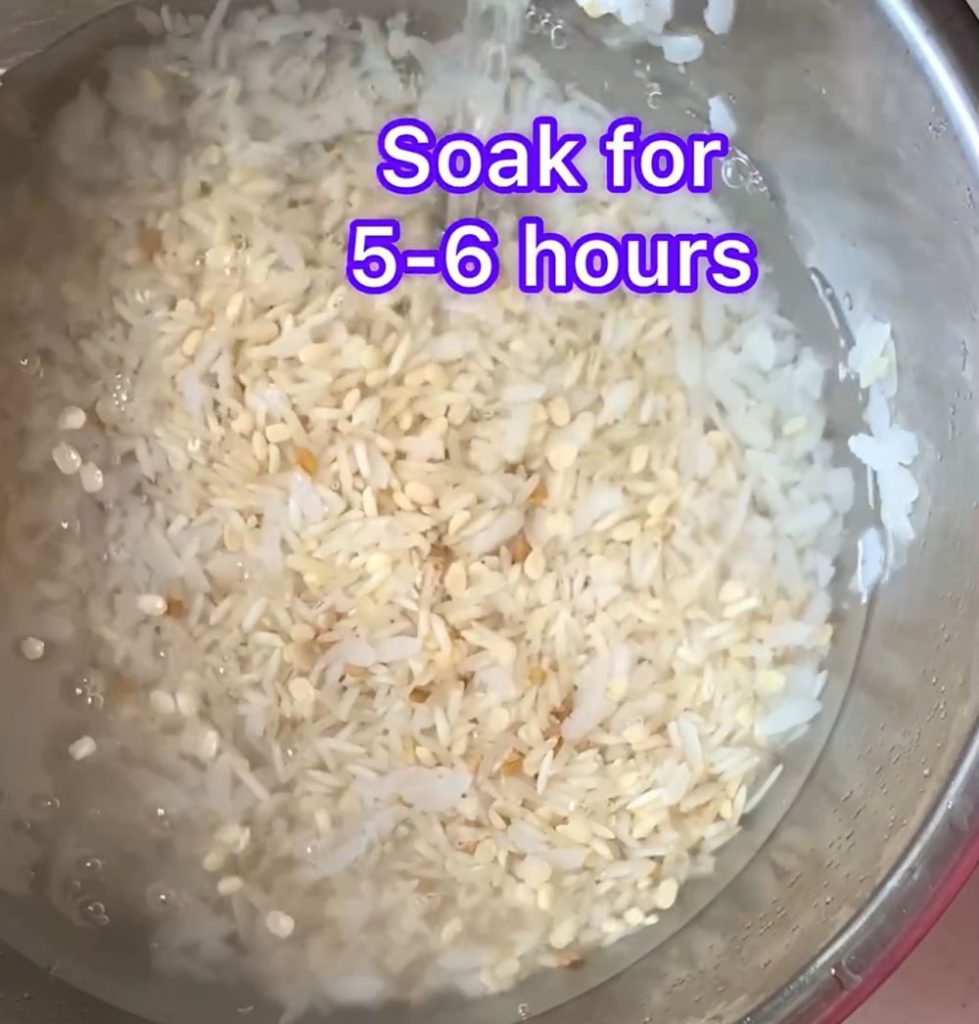
- Now, drain all the water. Add grated coconut and blend the batter to a smooth consistency. Add a little water at a time. Do not make too thin or a thick batter. Make sure everything is well combined.
- Transfer the batter to a large bowl. Make sure there is some room in the bowl because the batter will rise during fermentation. Add a tsp of rock salt and mix well. Cover and leave the batter for fermentation in a warm place for 8 to 9 hours.
- After the fermentation the batter will become very frothy. Add salt to taste. Now you can add regular table salt. Mix it very gently till it is well combined. Do not over mix the batter.
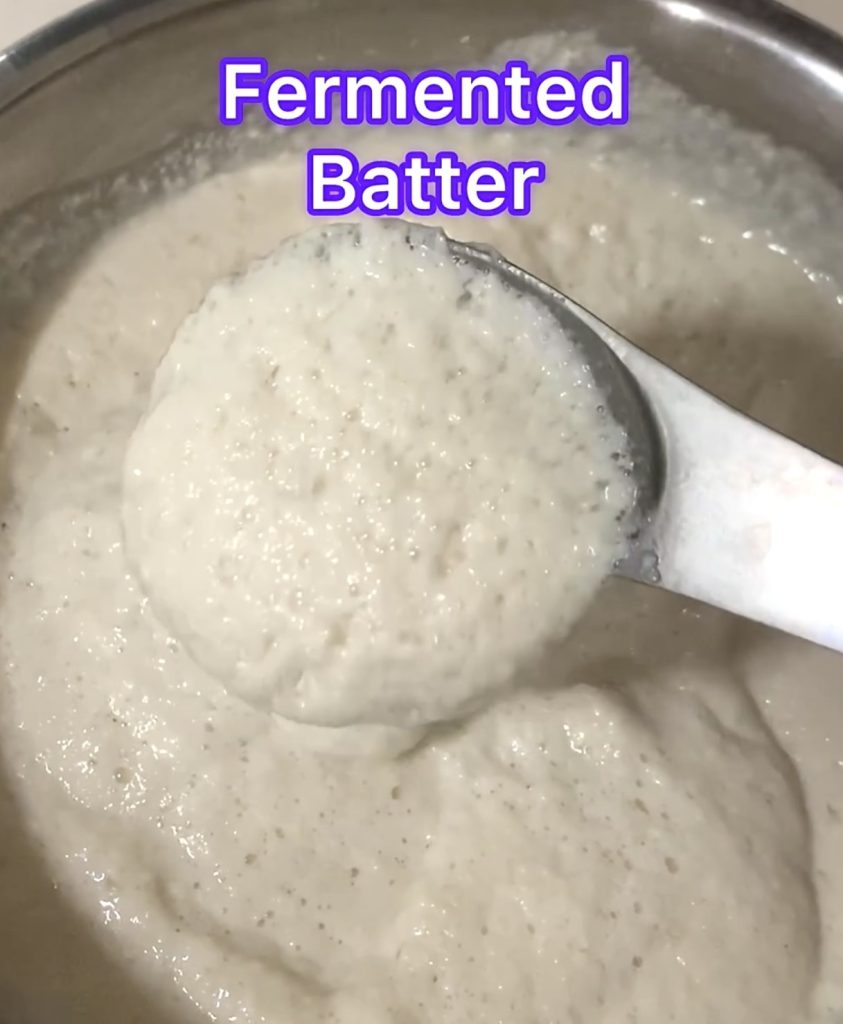
- Heat dosa tawa on a medium heat. Add a ladle full of batter. Spread slightly. Drizzle some ghee or oil around the edges and cover it with a lid for 2 to 3 minutes.
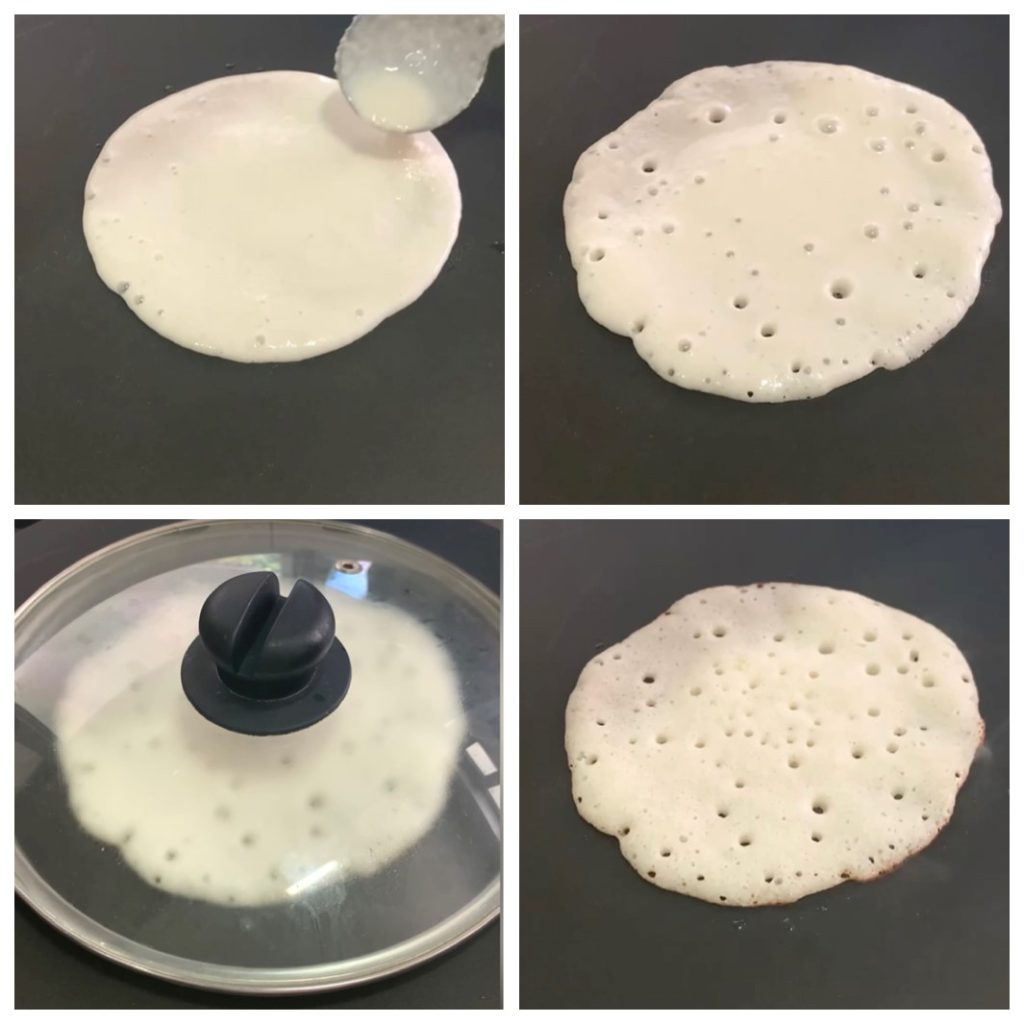
- Steam the dosa till top has set and the edges have browned.
- Take it out on a plate and serve it with coconut chutney or sambar.
Fermentation Tips
- Add rock salt to the batter before fermenting. Rock salt or Himalayan pink salt helps in fermentation. Do not use table salt.
- Do not skip fenugreek or methi seeds. It is the main ingredient that helps in fermentation.
- Do not add water in one go. Keep adding little by little to get right batter consistency.
- Mix the final batter with your hands for 2 to 3 minutes and keep it in a warm place. The warmth of your hand will help in fermentation.
- If you stay in a dry or cold place, fermentation may take more than 9 hours. You can place the batter in a pre-heated oven.
Storage
Securely seal the container and store the leftover batter in the refrigerator. The lower temperature will slow down the fermentation process, allowing you to use the batter for several days. While fresh batter tastes the best, but you store the batter for 2 to 3 days without compromising on the taste. Beyond that I do not recommend storing the batter. Freezing idli or dosa batter is not recommended. Freezing will lead to change in the texture and taste. Before using refrigerated batter give it a gentle stir to redistribute the ingredients.










[…] faster with repeated heat and abrasion. Conversely, PTFE’s ultra-low surface energy keeps eggs, dosas, and crêpes gliding with less oil—so long as you keep the heat sensible. Thus, for everyday […]